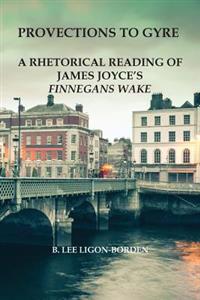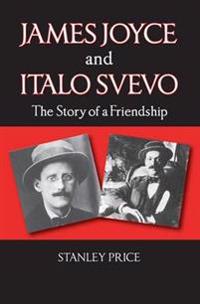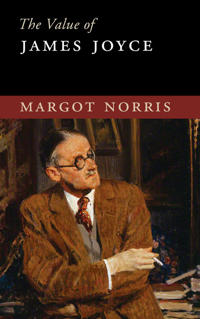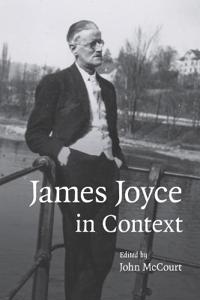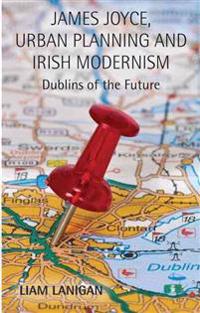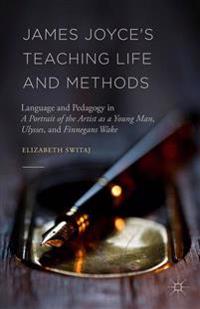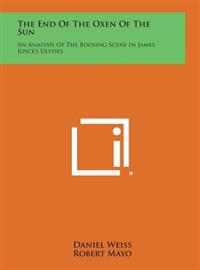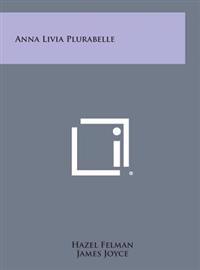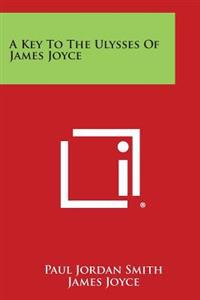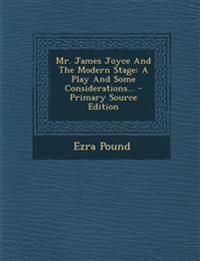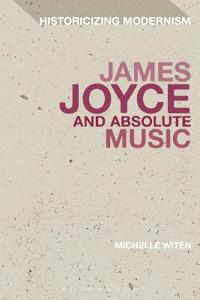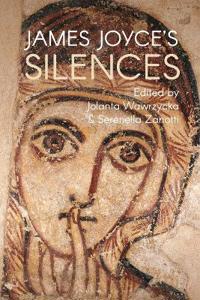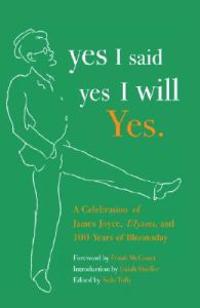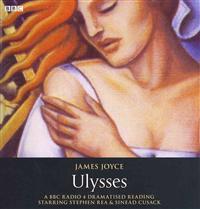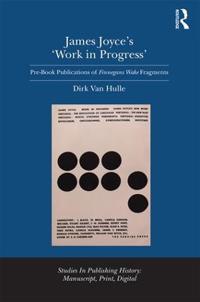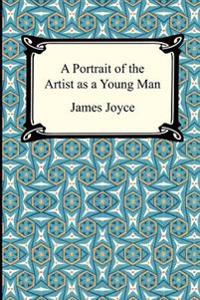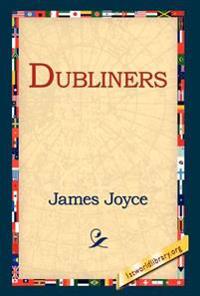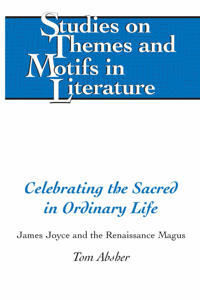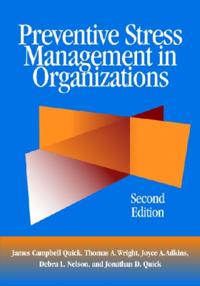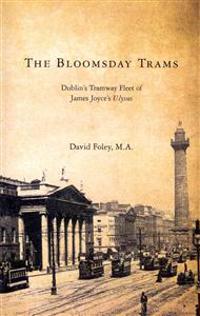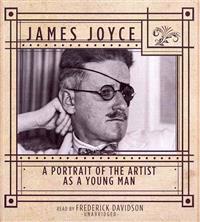Provections to Gyre: A Rhetorical Reading of James Joyce's Finnegans Wake (häftad)
ISBN: 9780990428251 - UTGIVEN: 2014-06James Joyce In The Nineteenth Century (Inbunden)
avJohn Nash
ISBN: 9781107021884 - UTGIVEN: 2013-10-31This is the first book to explore the depth and range of Joyce's relationship with nineteenth-century figures and cultural movements.[...]
The Value of James Joyce
ISBN: 9781107131927 - UTGIVEN: 2016-03Margot Norris' The Value of James Joyce explores the writings of James Joyce from his early poetry and short stories to his final avant-garde work, Finnegans Wake. His works include some of the most difficult and challenging texts in the English literary canon without diminishing his impressive popu[...]
The Value of James Joyce
ISBN: 9781107583160 - UTGIVEN: 2016-03Margot Norris' The Value of James Joyce explores the writings of James Joyce from his early poetry and short stories to his final avant-garde work, Finnegans Wake. His works include some of the most difficult and challenging texts in the English literary canon without diminishing his impressive popu[...]
James Joyce in Context (Häftad)
avJohn McCourt
ISBN: 9781107635937 - UTGIVEN: 2014-05This collection of original, cohesive and concise essays charts the vital contextual backgrounds to Joyce's life and writing. The volume begins with a chronology of Joyce's publishing history, an analysis of his various biographies and a study of his many published and unpublished letters. It goes o[...]
James Joyce, Urban Planning, and Irish Modernism (Inbunden)
avLiam Lanigan
ISBN: 9781137378194 - UTGIVEN: 2014-08Irish writing in the modernist era is often regarded as a largely rural affair, engaging with the city in fleeting, often disparaging ways, with Joyce cast as a defiant exception. James Joyce, Urban Planning and Irish Modernism shows how an urban modernist tradition, responsive to the particular pol[...]
James Joyce's Teaching Life and Methods
ISBN: 9781137559890 - UTGIVEN: 2016-01Before Joyce became famous as writer, he supported himself through his other language work: English-language teaching in Pola, Trieste, and Rome. The importance of James Joyce's teaching, however, has been underestimated until now. The very playfulness and unconventionality that made him a popular a[...]
The End of the Oxen of the Sun: An Analysis of the Boosing Scene in James Joyce's Ulysses (Inbunden)
avDaniel Weiss, Robert Mayo
ISBN: 9781258581190 - UTGIVEN: 201302Anna Livia Plurabelle (Inbunden)
avHazel Felman, James Joyce
ISBN: 9781258681616 - UTGIVEN: 2013-04Mr. James Joyce And The Modern Stage: A Play And Some Considerations... - Primary Source Edition (häftad)
ISBN: 9781295574063 - UTGIVEN: 2014-02James Joyce and Absolute Music
ISBN: 9781350014220 - UTGIVEN: 2018-02Drawing on draft manuscripts and other archival material, James Joyce and Absolute Music, explores Joyce's deep engagement with musical structure, and his participation in the growing modernist discourse surrounding 19th-century musical forms. Michelle Witen examines Joyce's claim of having structur[...]
James Joyce's Silences
ISBN: 9781350036710 - UTGIVEN: 2018-06In this landmark book, leading international scholars from North America, Europe and the UK offer a sustained critical attention to the concept of silence in Joyce's writing. Examining Joyce's major works, including Ulysses, Portrait of the Artist as a Young Man and Finnegans Wake, the critics prese[...]
Yes I Said Yes I Will Yes.: A Celebration of James Joyce, Ulysses, and 100 Years of Bloomsday (Häftad)
avNola Tully
ISBN: 9781400077311 - UTGIVEN: 2004-05On the fictional morning of June 16, 1904?Bloomsday, as it has come to be known?Mr. Leopold Bloom set out from his home at 7 Eccles Street and began his day?s journey through Dublin life in the pages of James Joyce?s novel of the century, Ulysses. Commemorating the 100th anniversary of Bloomsday, Ye[...]
A Companion to James Joyce (Inbunden)
avEditor:Richard Brown
ISBN: 9781405110440 - UTGIVEN: 2008-01-31Ulysses (CD-bok)
avJames Joyce
ISBN: 9781408468418 - UTGIVEN: 201201This is a dramatised reading of James Joyce's masterpiece adapted for BBC Radio 4, starring Stephen Rea and Sinead Cusack. Timelessly evocative, it is far more than the story of Stephen Dedalus' journey through Dublin. It is a huge, rich portrayal of human life. In this magnificent, highly accessibl[...]
James Joyce's 'Work in Progress'
ISBN: 9781409465959 - UTGIVEN: 2016-05The text of Finnegans Wake is not as monolithic as it might seem. It grew out of a set of short vignettes, sections and fragments. Several of these sections, which James Joyce confidently claimed would 'fuse of themselves', are still recognizable in the text of Finnegans Wake. And while they are und[...]
A Portrait of the Artist as a Young Man (Häftad)
avJames Joyce
ISBN: 9781420922455 - UTGIVEN: 200501Originally published in serial format, "A Portrait of the Artist as a Young Man," is the semi-autobiographical portrayal of James Joyce's early upbringing as an Irish Catholic in late 19th century and early 20th century Dublin. At the center of the novel is the protagonist Stephen Dedalus whose life[...]
Celebrating the Sacred in Ordinary Life: James Joyce and the Renaissance Magus
ISBN: 9781433139796 - UTGIVEN: 2017-05This book is an introductory examination of the Hermetic tradition in the Renaissance and how James Joyce made use of certain of its salient features in his four works of fiction: Dubliners, A Portrait of the Artist as a Young Man, Ulysses, and Finnegans Wake. This book makes a useful contribution t[...]
Preventive Stress Management in Organizations (Inbunden)
avJames Campbell Quick, Thomas A. Wright, Joyce A. Adkins
ISBN: 9781433811852 - UTGIVEN: 201208The Bloomsday Trams: Dublin's Tramway Fleet of James Joyce's Ulysses (Häftad)
avDavid Foley M. a.
ISBN: 9781439259689 - UTGIVEN: 2009-10A Portrait of the Artist as a Young Man (CD-bok)
avJames Joyce
ISBN: 9781441746023 - UTGIVEN: 2013-03

